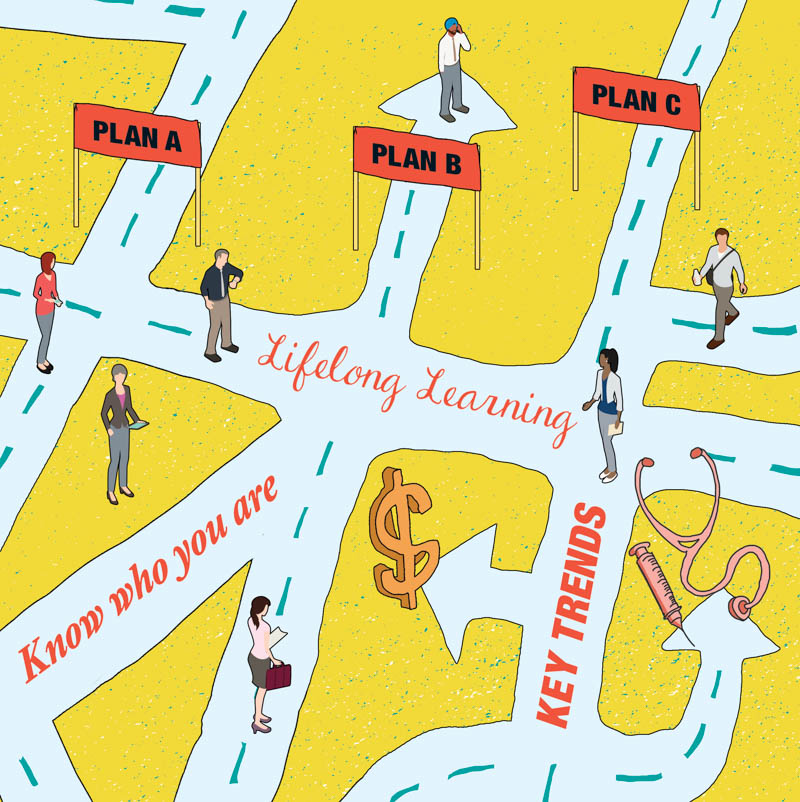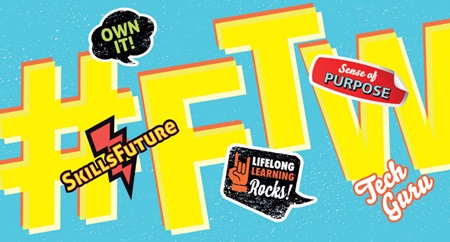Take Ownership Of Your Career Development

Many of us enter the working world with jobs related to what we studied, and hope for interesting work and career progression. Yet, recent research by Accenture shows that 76% of Singapore-based employees are dissatisfied with their jobs. The lack of career development is a top reason, trumping pay.
Nationally, as the SkillsFuture initiatives show, career development is promoted through ensuring that we have the right skills and experience. From an organisational perspective, career development is a key strategy to engage and retain staff. What about you? How important is your career development? What are you doing to develop your career?
In my career development workshops, most participants, including public officers, confess that they spend more time planning their vacations than their careers! Many are so busy that little time or energy is left to think about their careers. This is an insidious trap because 40 years of our lives can drift by quickly. No one cares more about your career than you.
Consider these examples: A young officer, who joined the Public Service with a diploma, recently obtained a degree. She aspires for more senior roles, but is not sure how to get there. A long-serving officer in the Service with 10 years to retirement wonders if he should just “settle down”, or find something new and exciting since the retirement age keeps inching up. Another manager struggles with work commitments after the birth of her second child. She contemplates quitting, but feels it is a pity to give up her career.
These are all important questions. Rather than just having circular conversations in your head, take ownership of your career and take action.
Dr Beverly Kaye, co-author of Help Them Grow or Watch Them Go, suggests five steps to guide our career planning:
1. Know who you are: What are your strengths, interests and values? What energises you at work (other than break time)? What do you naturally do well in? What is important to you at work?
2. Know what others think of you: What is your reputation or brand? Reputation precedes opportunities. Manage your reputation or you will be managed by it.
3. Know the future: What are the key trends in your organisation or country? How will these trends impact what public officers need to do? What skills will become more valuable in time? Plan with the future in mind.
4. Know your options: What are your Plans A, B or even C? Rather than think of your career as a ladder, think of it as a rock wall. To get ahead, sometimes you need to move right, left, diagonally, or just grow in place. There are more options than you may realise.
5. Know your plan: What do you need to learn now, and how? Take action. Opportunities go to those who are prepared. Know what types of skills, experiences and exposure you need.
Thinking through these five steps is an iterative and continuous process to help us navigate our 40 years of work. Talk to your peers, ex-classmates or people who have walked the journey.
Talk to your manager too. This is one of the most important steps. Do not wait for the six-monthly appraisal. Do it informally over coffee. Share your aspirations, seek their advice and ask what skills and experience you will need to move your career forward. Agree on specific small steps, what you will do, and how he or she can support you in achieving your career aspirations.
An officer who attended our CareerPower workshop discovered that he wanted to improve his negotiation skills. He took the initiative to ask if he could shadow a few experienced frontline colleagues. “My manager then helped me set up this development opportunity,” he shared.
Remember, a career is not built overnight. Enjoy your learning process and know that opportunities go to those who are prepared.
Wendy Tan is a consultant, writer and founding partner of Flame Centre. She works with organisations in Asia to engage, develop and retain their employees. She will be conducting public sector career development workshops in August and October 2015. For more details: www.flamecentre.com
- POSTED ON
Jul 1, 2015
- TEXT BY
Wendy Tan
-
Work Better
Tips For Giving Tailor-Made Career Advice








